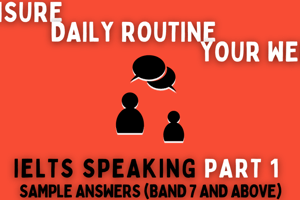Podcast
Questions and Answers
What is the primary consequence of equivocating in IELTS exam responses?
What is the primary consequence of equivocating in IELTS exam responses?
- It results in misunderstandings and a lower band score (correct)
- It makes the response more nuanced
- It leads to a higher band score
- It adds connotation to the language
What does the word 'exacerbate' mean in the context of the IELTS exam?
What does the word 'exacerbate' mean in the context of the IELTS exam?
- To convey a rhetorical tone
- To make a situation better
- To make a situation worse (correct)
- To add nuance to a statement
What is the primary purpose of using rhetorical techniques in the IELTS exam?
What is the primary purpose of using rhetorical techniques in the IELTS exam?
- To equivocate and avoid a clear stance
- To convey nuanced language
- To persuade or influence the audience (correct)
- To convey connotation
Why is understanding connotation important in the IELTS exam?
Why is understanding connotation important in the IELTS exam?
What is the overall benefit of focusing on connotation, nuance, equivocate, exacerbate, and rhetoric in IELTS vocabulary?
What is the overall benefit of focusing on connotation, nuance, equivocate, exacerbate, and rhetoric in IELTS vocabulary?
Flashcards are hidden until you start studying
Study Notes
IELTS Vocabulary: Understanding Connotation, Nuance, Equivocate, Exacerbate, and Rhetoric
In the context of the IELTS exam, vocabulary plays a crucial role in achieving a high band score. The exam assesses your ability to use vocabulary effectively to communicate complex ideas, understand texts, and express your opinions. In this article, we will discuss the importance of understanding connotation, nuance, equivocate, exacerbate, and rhetoric in the context of IELTS vocabulary.
Connotation and Nuance
Connotation refers to the emotional or cultural associations that a word or phrase carries. For example, the word "war" has a negative connotation, suggesting violence and destruction, while "conflict" has a more neutral connotation, suggesting disagreement or competition.
Nuance, on the other hand, refers to the subtle differences in meaning that words or phrases can have depending on the context in which they are used. For example, the word "look" can have different meanings depending on whether it is used in the context of "looking at something" or "looking for something."
Understanding the connotation and nuance of words is essential for the IELTS exam, as it allows you to express complex ideas more effectively and understand the texts you are reading.
Equivocate
Equivocation is the use of ambiguous or misleading language, often to deceive or manipulate. In the context of the IELTS exam, it is important to avoid equivocating in your responses, as this can lead to misunderstandings and lower your band score. Instead, aim to use clear and unambiguous language that accurately conveys your ideas and opinions.
Exacerbate
Exacerbate means to make a situation worse or more severe. In the context of the IELTS exam, it is important to understand how various factors can exacerbate or improve a situation, and to use this knowledge to express your ideas effectively. For example, "The effects of climate change are exacerbated by deforestation and pollution."
Rhetoric
Rhetoric refers to the use of language to persuade or influence others. In the context of the IELTS exam, it is important to understand different rhetorical techniques and how to use them effectively to convey your ideas and opinions. For example, "Appeal to emotion" is a rhetorical technique that involves using emotional language to persuade, while "Appeal to logic" involves using logical arguments to persuade.
Conclusion
Understanding the importance of connotation, nuance, equivocate, exacerbate, and rhetoric in the context of IELTS vocabulary is essential for achieving a high band score. By focusing on these aspects of vocabulary, you can communicate more effectively, understand texts more thoroughly, and express your ideas and opinions more persuasively.
Studying That Suits You
Use AI to generate personalized quizzes and flashcards to suit your learning preferences.




